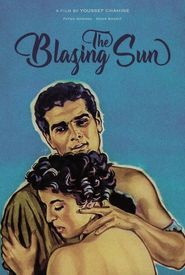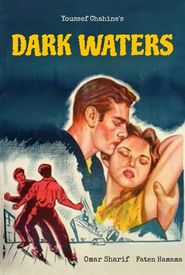Here is the biography of Faten Hamama:
Faten Hamama, known as "The Lady of the Arabic Screen," is the most important and honored actress in Egyptian and Arabic cinema. Born in 1931 in Elmansoura, Egypt, she started her journey in cinema at the age of six when she won a contest for the most beautiful child in Egypt. Her father, Ahmed Hamama, an employee of the Egyptian Ministry of Knowledge, sent her picture to director Muhammad Karim, who was looking for a child for his new film with Egyptian musician Mohamed Abdel Wahab. Fatenauditioned for and got a role in this movie, Yom said (1940) ("A Happy Day").
Faten impressed the filmmakers so much during shooting that she was actually given more lines and scenes in the picture than were originally scripted for her. Karim put her under contract, and four years later he gave her a role in a film with Mohamed Abdel Wahab again, Russassa fil kalb (1944) ("A Bullet in the Heart"). With her third movie with Karim, Dunia (1946),Faten showed filmmakers and audiences alike that she was an actress ready for bigger roles.
Her father, along with her family, moved to Cairo to help her in her career. She also began studying her craft at the High Institute of Acting in 1946. With actor and director Youssef Wahbi, Faten started a new stage of her career, in melodramas. She made more films with Wahby, such as Malak al rahma (1946) ("The Angel of Mercy"),in which she played his daughter. Although only 15 years old at the time, it was generally agreed that she stole the film.
The 1950s brought new directors to Egyptian cinema and was the beginning of what was to become known as "The Golden Age of Egyptian Cinema." Faten appeared in a number of films by these new directors, such as Salah Abouseif's first realism picture, Laka yom ya zalem (1951) ("Your Day Will Come"),which was a box-office hit and was shown at the prestigious Cannes Film Festival in France.
She also worked with director Kamal El Sheikh in his first movie, House No. 13 (1952) ("House No. 13"),and again in Lan aataref (1961) ("I Will Not Confess"). Her film Last Night (1963) ("Last Night") captured at least 10 awards in the 1965 national competition and was also shown at the Cannes festival. She excelled at comedy, as evidenced by her astonishing role in El-Ustazah Fatmah (1952) as lawyer Fatma.
She also worked closely with two other directors of this period, Ezz El Dine Zulficar and Henry Barakat, and made successful films with both. In fact, she married Zulficar in 1947 while shooting Abu Zeid el Hilali (1947). He was known as the king of "romantic" movies and together they worked to further that vision, as in Khulud (1948) ("Immortality") by Ezz El-Dine Zulficar.
Faten soon became the highest-paid actress in Egyptian cinema, and remained so until her final feature, Ardh el-Ahlam (1993) ("Land of Dreams") and TV series, Wagh el qamar (2000) ("Face of the Moon"). More successful romantic roles with Ezzel Dine followed, such as Mawad ma al saada (1954) ("Appointment with Happiness").
Director Henry Barakat specialized in musical romantic movies, social commentary, and women's rights in society. During the making of Lahn al khouloud (1952) ("Immortal Song"),they developed a close professional bond, and Barakat used Faten to explore all his talent and all his visions. The success of the romantic musical Lahn al khouloud (1952) that became the movie of the year challenged both of them to make more successful musical romantic films, which they did with such pictures as Daiman maak (1954) ("With You Forever") and Mawad gharam (1956) ("Appointment with Love").
Faten left Egypt from 1966-1971 because she resisted political pressure that was applied to her. She divided her time between Lebanon and London, England. During this period, Egyptian president Gamal Abdel Nasser asked some prominent critics and writers to try to persuade her to return to Egypt, saying that "Faten Hamama is a national treasure." Her return to Egypt on 1971 breathed life back into Egyptian cinema.
She insisted that her films reflect the values of the society through the family relationships. Her first film upon return was Sahera (1971) with Salah Zulfikar. Her role in Imberaturiyyat Mim (1972) ("Empire M") as a widow with
















